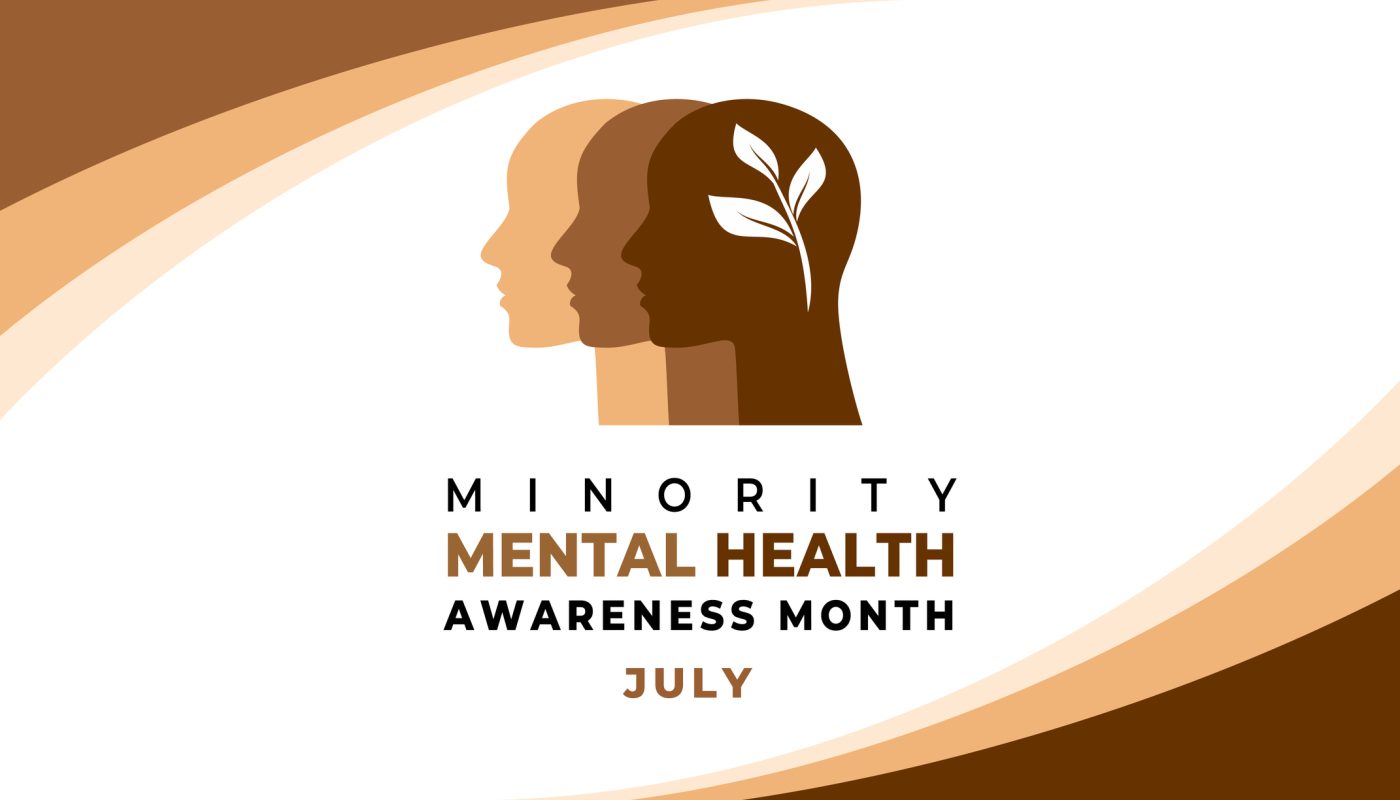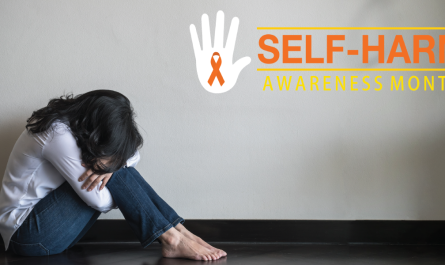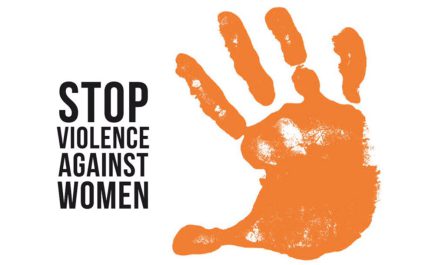National Minority Mental Health Awareness Month
National Minority Mental Health Awareness Month, which takes place in July, aims to increase public awareness of the particular mental health issues that minority groups experience. This entire month-long celebration strives to increase awareness, lessen stigma, and guarantee fair access to mental health services for all populations. Let’s explore the significance of National Minority Mental Health Awareness Month, learn about minority patients’ experiences receiving mental health care, and talk about the actions we can take to promote and support their well-being.
In order to address the inequities in mental health care access and outcomes across minority groups, National Minority Mental Health Awareness Month was established. Marginalized groups, such as members of racial and ethnic minorities, LGBTQ+ people, and immigrant communities, frequently experience particular stress and confront institutional obstacles that can be harmful to their mental health. These obstacles may include prejudice, cultural stigma, a lack of resources, a lack of familiarity with the language, and discrepancies in access to healthcare.
It is critical to understand how a person’s cultural, ethnic, and social identities influence their experiences with their mental health. The relationship between mental health and identities can be complicated for minority people. Acculturation, racial prejudice, generational inequalities, and cultural norms are just a few factors that impact how mental health is seen and treated in these cultures.
When it comes to mental health, individuals from diverse minority backgrounds may face unique challenges and have specific needs that should be acknowledged and addressed. Here are some examples of diverse minority groups that seek mental health support:
- Racial and Ethnic Minorities: Individuals who identify as African Americans, Hispanic/Latinos, Asian Americans, Native Americans, or Pacific Islanders fall under the category of racial and ethnic minorities. Minority groups frequently experience unique pressures from discrimination, acculturation, and cultural identification that can harm their mental health.
- LGBTQ+ Community: Lesbian, gay, bisexual, transgender, and questioning (LGBTQ+) people may experience increased rates of mental health problems as a result of societal stigma, discrimination, and difficulties with coming out or gender affirmation. Services for mental health that are affirming and culturally competent are crucial for this group.
- Immigrant and Refugee Populations: Immigrants and refugees may have mental health issues as a result of their migration, acculturation stress, language barriers, and separation from their home country, families, or support systems. Access to culturally competent mental health services is essential to meet their specific needs, and access to culturally competent mental health services is essential.
- Religious and spiritual minorities: People from these groups may experience mental health issues as a result of conflicts between their beliefs and societal expectations, discrimination, or a lack of awareness of their unique spiritual or religious practices. Mental health practitioners who are familiar with many religious and spiritual traditions might provide helpful support.
- Individuals with Disabilities: This category comprises people who have developmental, intellectual, sensory, or physical impairments. Due to their impairment, they could additionally struggle with stigma, ableism, social isolation, or accessibility problems. It is crucial to provide inclusive mental health treatments that address both their mental health needs and issues relating to their disabilities.
- Elderly Minority Populations: Older persons from minority cultures may experience mental health problems related to adjusting to a new culture, loneliness, prejudice, or a lack of access to healthcare. Their well-being depends on specialized mental health services that take into account their particular needs as elderly people from various backgrounds.
Additionally, minority people may have higher rates of specific mental health conditions like depression, anxiety, post-traumatic stress disorder (PTSD), and substance abuse. These conditions are frequently brought on by the effects of societal injustices and ongoing stressors like discrimination, socioeconomic disparities, and immigration-related difficulties. Despite these elevated risks, minority populations’ access to mental health resources is nevertheless constrained, creating a sizable treatment gap.
Promoting Equity and Empowerment: Change Management Techniques
The goal of National Minority Mental Health Awareness Month is to advance equity, inclusivity, and cultural sensitivity in mental health treatment. Here are some methods for promoting change and catering to minority populations’ mental health needs:
- Increasing Awareness and Education: Spread accurate information about mental health across minority populations to increase awareness and education. Encourage frank and nonjudgmental discussions about mental health to lessen stigma and promote seeking assistance.
- Culturally Competent Care: Develop culturally sensitive mental health treatments that take into account the particular requirements and experiences of minority populations. Provide language-accessible treatments, educate mental health professionals on cultural nuances, and incorporate other viewpoints into treatment strategies.
- Community Support and Advocacy: Promote the growth of neighborhood-based groups that give minorities access to resources, and a safe place to express their experiences and support. Promote policy changes that expand community access to mental health care, regardless of socioeconomic status or cultural heritage.
- Partnerships and Collaboration: To close the gap between minority groups and mental health services, promote partnerships and collaborations between grassroots organizations, community leaders, and mental health organizations. Together, we can make a bigger impact, improve outreach, and make sure that resources get to the people who need them the most.
- Fostering Resilience and Self-Care: Stress the value of overall well-being while promoting self-care behaviors in minority cultures. Encourage people to seek out culturally appropriate coping mechanisms, participate in heritage-celebrating events, and prioritize self-care practices that support mental, emotional, and physical health.
In order to prioritize mental health equality and advocate for the various needs of minority communities, National Minority Mental Health Awareness Month acts as an important reminder. We can promote inclusive mental health care systems and support the well-being of all people, regardless of their background, by addressing the particular difficulties encountered by these communities and cooperating. Let’s work together to eliminate stigma, increase awareness, and create a society where everyone can access high-quality mental health care fairly fair access to high-quality mental health care.




